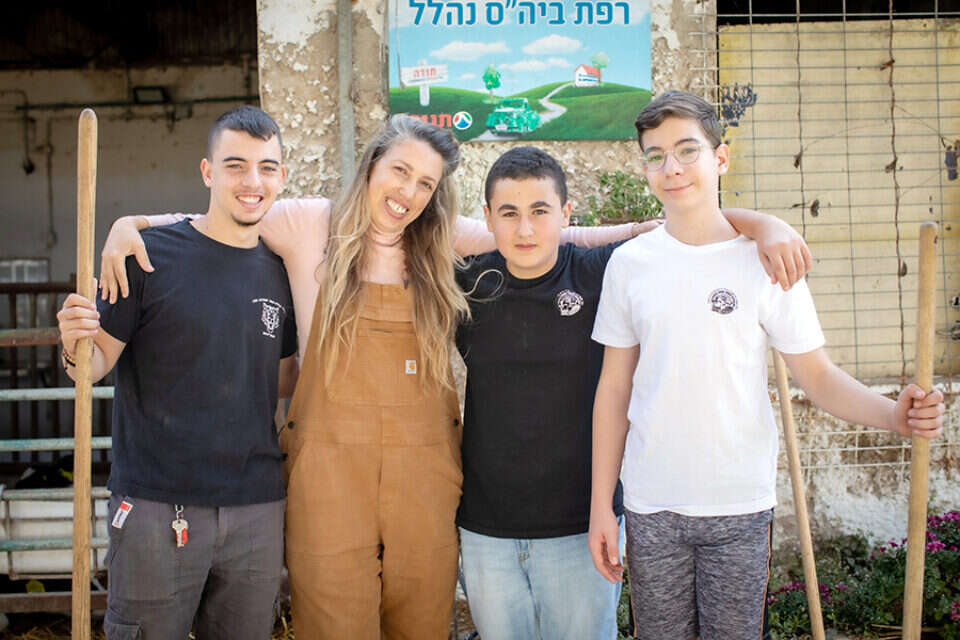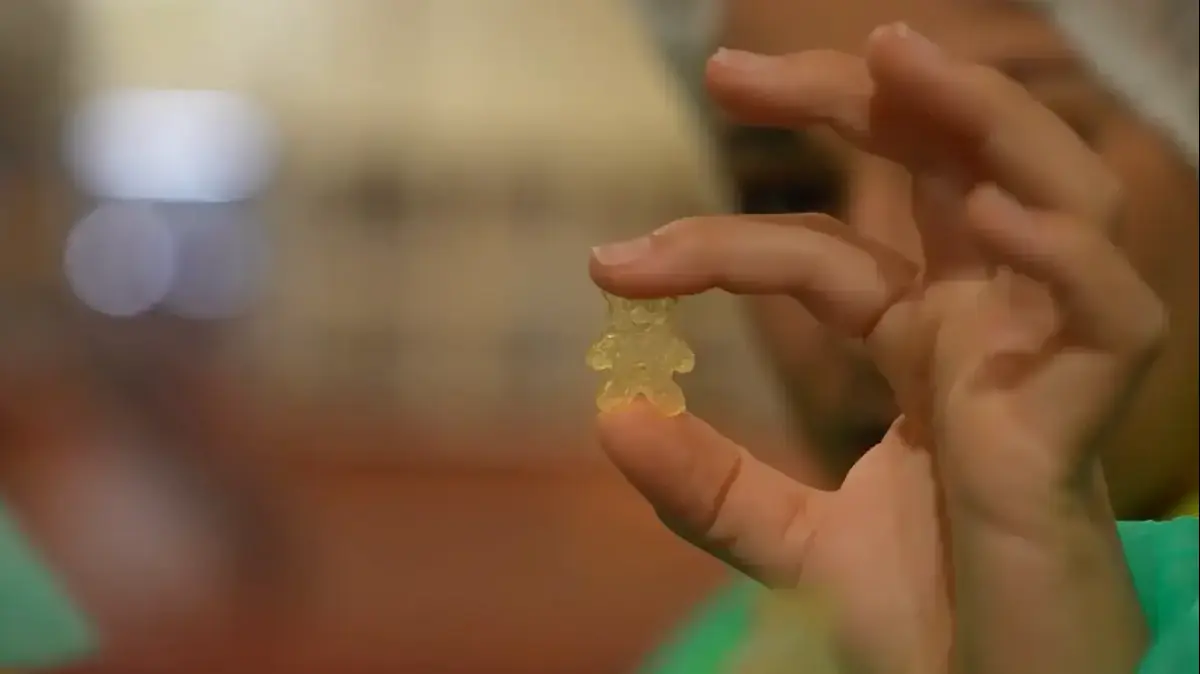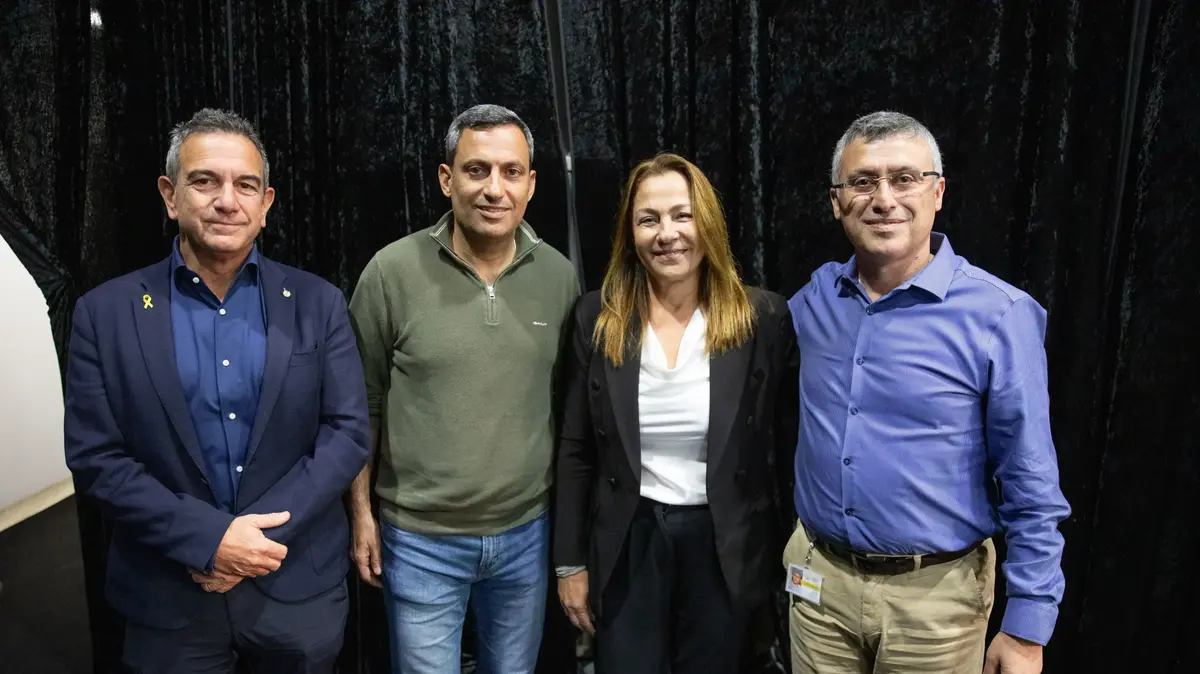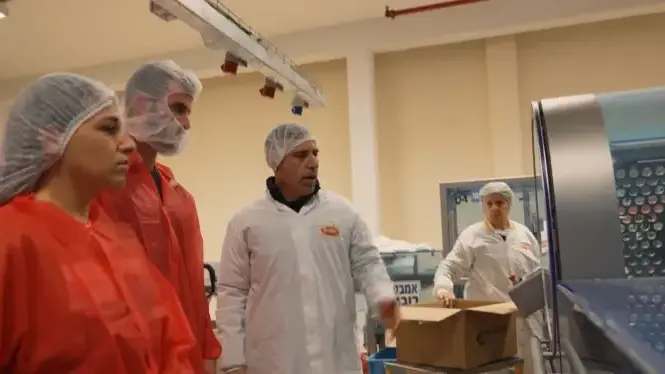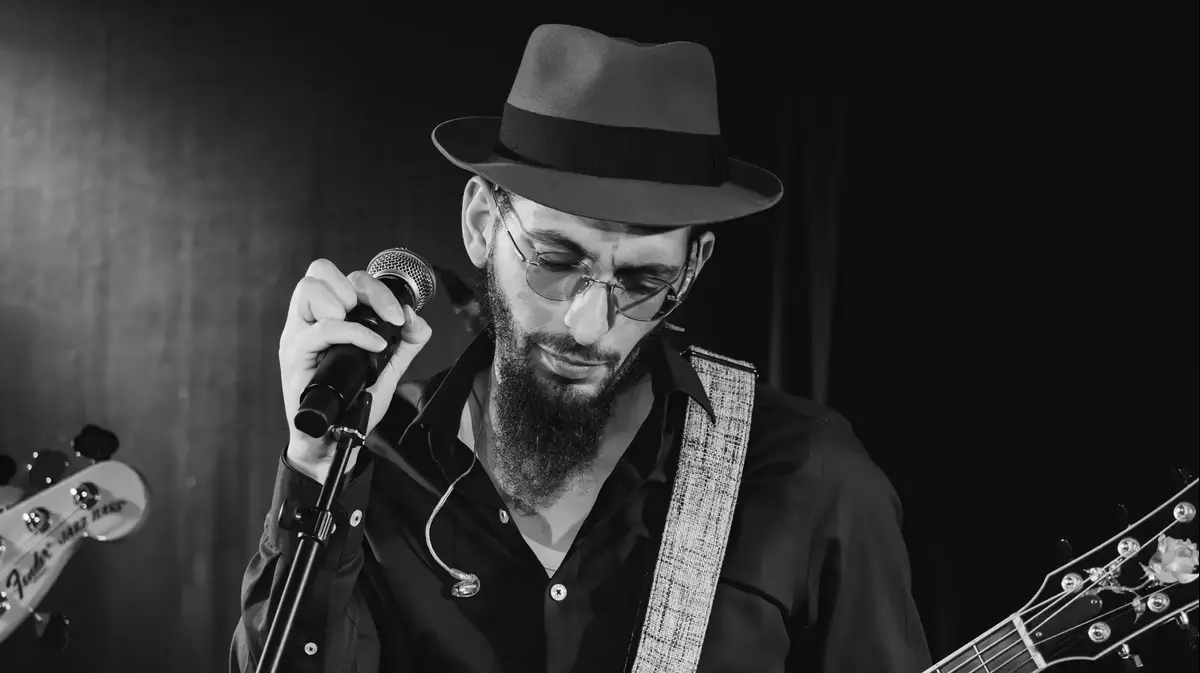The barn in the WIZO Nahalal youth village has existed since the 1920s, but six years ago it was closed due to the difficult situation it reached.
The one who took it upon herself to save the barn, with the help of many other factors, was Sarit Yukar, a Jerusalemite who was captivated by the charms of the dairy industry at the age of 18, and was called to the flag by the local veterinarian.
Arriving at an educational institution and the combination of her great love for cows and teaching, was for her a closing of a circle.
"My first acquaintance with cows and a cowshed was before the army, as part of the Nahal nucleus in Kibbutz Afikim," she says, "I fell in love and since then all my service has been in the cowshed.
I was also in Bitvata, and later in Kfar Giladi.
I started studying at a preparatory school for art teaching, and at the same time the kibbutz's barn manager told me that a cowshed management course had opened in Ruppin and that he really wanted me to go to it.
In Korem, I met Arnon, my current husband, whom I had seen earlier in a fertility course where we studied. "
'We started dating and after two years we got married.
We built our house in the Yokneam colony and started working together in a barn that his family has had for three generations.
Today I help there mainly with consulting, he also helps with physical work, but in his profession today he manages solar roof projects.
"Arnon's parents maintain the barn and we both help them in the management section, and in front of the customers."
On the history of the family barn, Arnon adds: "Grandpa and Grandma started from a few cows - and the rest is history. In 1972 my father got the barn after he was discharged from the army. His parents moved aside, my grandfather worked with him but Dad actually ran the business. Young and over the years we have made a leap forward in terms of the size of the barn. "
After the wedding, Sarit worked in a number of kibbutzim, "including during the birth period when I came every day to milk in the barn at Sha'ar HaEmakim, right up until the deputies showed up."
Over the years, she considered starting a children's clothing business and even left the industry for a while, until the call came from Dr. David Sharoni, the veterinarian of the WIZO Nahalal Comprehensive School.
Experience making through the hands
"At that time, the barn there was in crisis," says Sarit. "Dr. Sharoni heard that I had left the Valley Gate, called me immediately and said that there was a real challenge here, to save the place, and called me for a job interview.
"I realized that a whole world of education was opening up for me, and here closed the circle of teaching studies that I started at the beginning as someone who believes wholeheartedly in the importance of education - not just as a profession but as a real vision - and instilling values in the younger generation, it was a great opportunity for me."
"Dealing with a barn is a world alliance."
Arnon and Sarit with their daughter, Shalev, Photo: Arik Sultan
The barn was in a challenging situation in all respects - educational and professional.
"I started to improve and do whatever it took to get to the point where the barn was working properly," says Sarit. Donations and lots of factors were involved in this process, such as Tnuva who helped financially and professionally in everything that was needed and everyone went with my dream.
In general, the connection of the barn with Tnuva has lasted for 95 years and when I came here and realized that we needed help in all areas - they were here by my side. "
Today, Sarit is proud of the barn trend that was not present in Nahalal before, and is already closing a third class with more students joining every year.
"The students who come here experience through their hands the making of the barn, the work here creates for them a real identification and connection with the land. They understand how complex the milk production process is and how much it takes for this product to reach the table. The barn is actually a leading industry The campers come to us for shifts in the morning, afternoon and evening and take part in all the day-to-day activities of the barn. The work here gives them values of responsibility and commitment. Besides that we have a team of 15 students and campers who fell in love with the barn Work here.
"The students in our major study for matriculation in five units and in the twelfth grade they do a follow-up exam and an agrotop, which is a kind of practical experiment in the barn.
As part of the dairy trend, we have teachers who teach about the agricultural crops associated with the industry, about proper nutrition, sowing and more. "
The educational barn in Nahalal, says Sarit, currently boasts a quota of one million liters of milk a year.
"There is a great team here that helps me run the barn, and the boarding school is also in the process. Once the students were sent to the barn as punishment, and for me it was absurd. We changed that too and the children who come here today smile, come for fun. Getting to work and helping, they get a positive experience and that's what's most important to me.
"Every student takes the experience with them for the rest of their lives. I see graduates who come to visit from all kinds of yearbooks. This barn has a glorious history and I am glad that I have a part in it. As the only barn manager in youth villages in Israel, "And educational institutions but also in other dairy farms, to know how to lead it. At the same time, it is important to remember that food security, of which dairy farms are a part, is a value that must be preserved because it is Israeli agriculture."
"Tnuva works with all the agricultural schools and youth villages that have dairy farms. It is not a business matter at all, and each time it is exciting to see the combination of ideal education, settlement, values, work and responsibility."
Were we wrong?
Fixed!
If you found an error in the article, we'll be happy for you to share it with us

